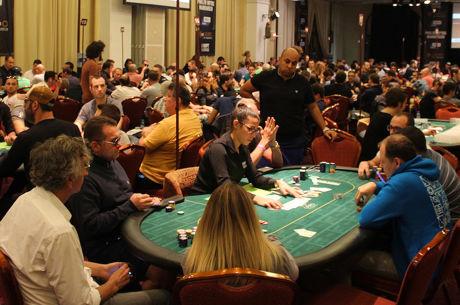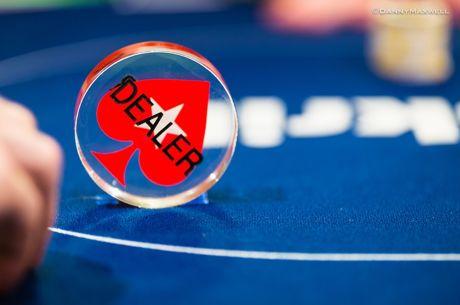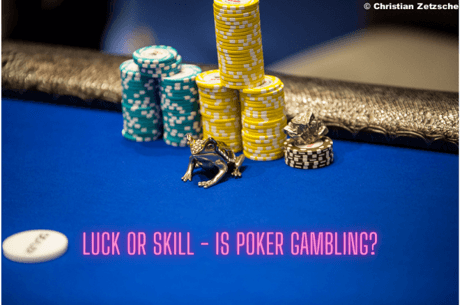How Long Is the Long Run in Poker?

In poker, the question "How long is the long run?" often comes up when beginners are thinking about whether or not they are winners.
They know that all players run hot and cold, getting lucky and unlucky. They are told not to rely on short term results when judging whether or not they are winning players. Rather they must keep good records and see how they do in the long run.
But what exactly is the long run? And how will they know it when they get there? Simply put, how long does it take before one can ascribe profit at poker to skill rather than luck?
There is no definitive answer. This is because there is no definitive mark in time that designates a certain period as the long run. As in most things in poker, the answer is relative.
We can all agree that 50 hours of play in a casino is a longer run than 10 hours. So averaging $30 an hour over a 50-hour stretch is more impressive than winning $300 in a 10-hour stretch. But averaging $30 an hour over 500 hours is better still.
Similarly, for online players we can all agree that winning three big bets per 100 hands over 100,000 hands is a better indication of a player's skill level than winning three big bets per 100 hands over just 1,000 hands.
That's all well and good. Doing well over a longer period of time is a better indication of skill than doing so over a shorter period of time. Still... how long is the long run?
Serious players disagree. But there are some estimations that are worth considering.
In brick-and-mortar casinos where players play only one hand at a time, the rule of thumb has generally been that 500 hours of play is a reasonable amount to consider the "long run." That is, if you had an hourly win rate of two big bets per hour after 500 hours (for example), you could consider yourself a winning player overall.
With online poker, where players may play many hands at the same time, and thereby a hundred (or hundreds) of hands every hour, the long run is measured by number of hands more than by hours of play (since the number of hands one might play in an hour varies). With that in mind, some serious online players have suggested that 100,000 hands be considered the "long run."
Playing 100 hands an hour, that would be nearly half a year of full-time, 40-hour-a-week play. If you're ahead of the game at that point, it's generally considered a fair conclusion that you are "beating the game," and not just the beneficiary of good luck.
These numbers may work as general guidelines. But truth be told, there are some essential flaws in applying even these rough estimates.
First of all, such numbers presume both you and your opponents are playing at a consistent skill level throughout the entire sample size. But are you? Can you really say that your game is at the same level now as it was half a year or a year ago?
Similarly so with your opponents. Are they really at the same level as they were back a year ago or so? If, for example, you have been getting better during the 500 hours of live poker or 100,000 hands of online poker you've played, then perhaps your most recent results are a better indication of your relative skill — and thus your ability to win — than would be your entire average result.
Furthermore, and perhaps more troubling, if the average skill level of your opponents is improving (as the bad players give up the game, for example), then your average results over the sample may artificially inflate your edge against your current opponents. The fact that after 500 hours you're ahead of the game might actually be a misleading indicator of your future ability to beat the improved players in the game.
What's a player to do, then? The answer is neither simple nor comforting. While the rough rules of thumb may give the thoughtful player some general picture of whether he or she is a winning or losing player, remarking on such benchmarks is no substitute for the regular examination of your play and the decisions you make at the table.
Have you been sucking out after getting it in bad? If so, your positive results are the product of good luck more than skill. Have you been getting it in good but getting outdrawn? If so, your skill has not been rewarded.
Whether your short term or long term results are positive or negative, you constantly need to review and judge the individual decisions you've been making as objectively as you can. That's the only real way of evaluating your game.
Ashley Adams has been playing poker for 50 years and writing about it since 2000. He is the author of hundreds of articles and two books, Winning 7-Card Stud (Kensington 2003) and Winning No-Limit Hold'em (Lighthouse 2012). He is also the host of poker radio show House of Cards. See www.houseofcardsradio.com for broadcast times, stations, and podcasts.
Photo: "V long highway" (adapted), Chris Chrissss, CC BY 2.0.









